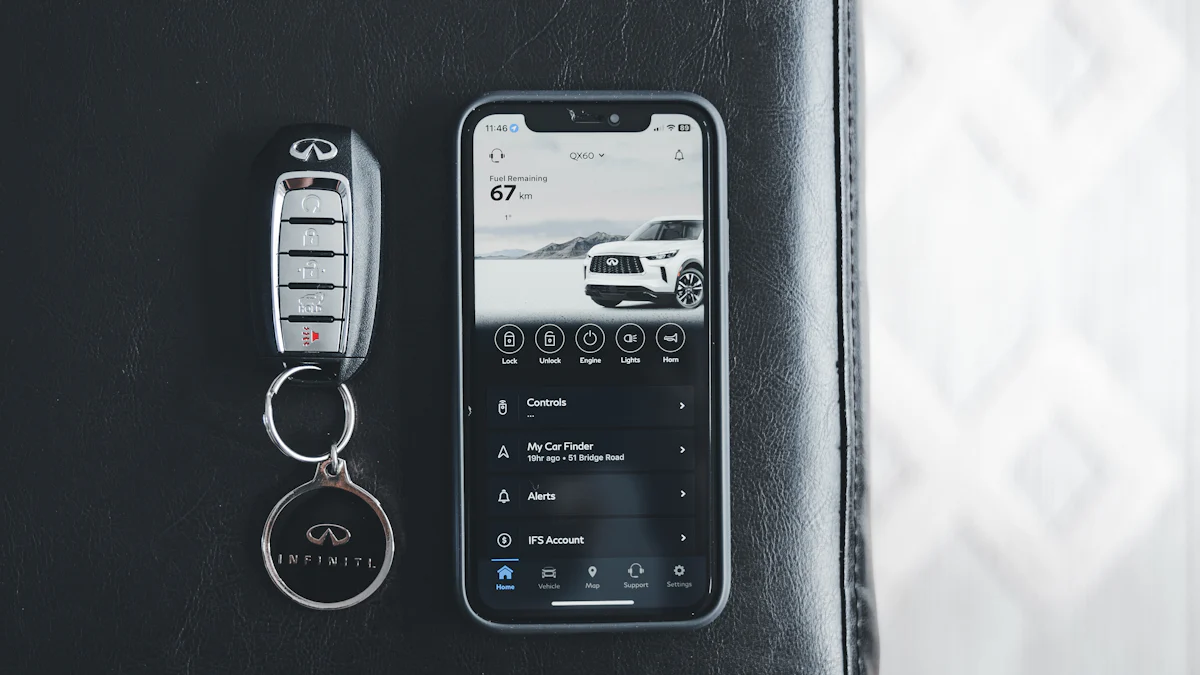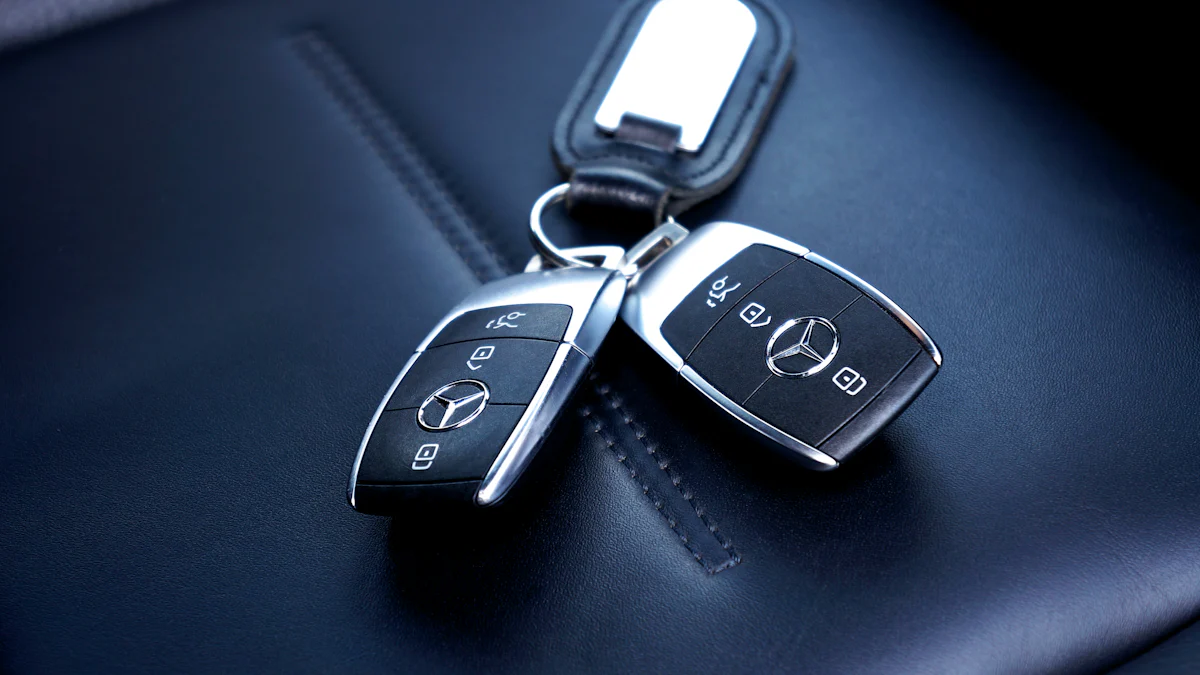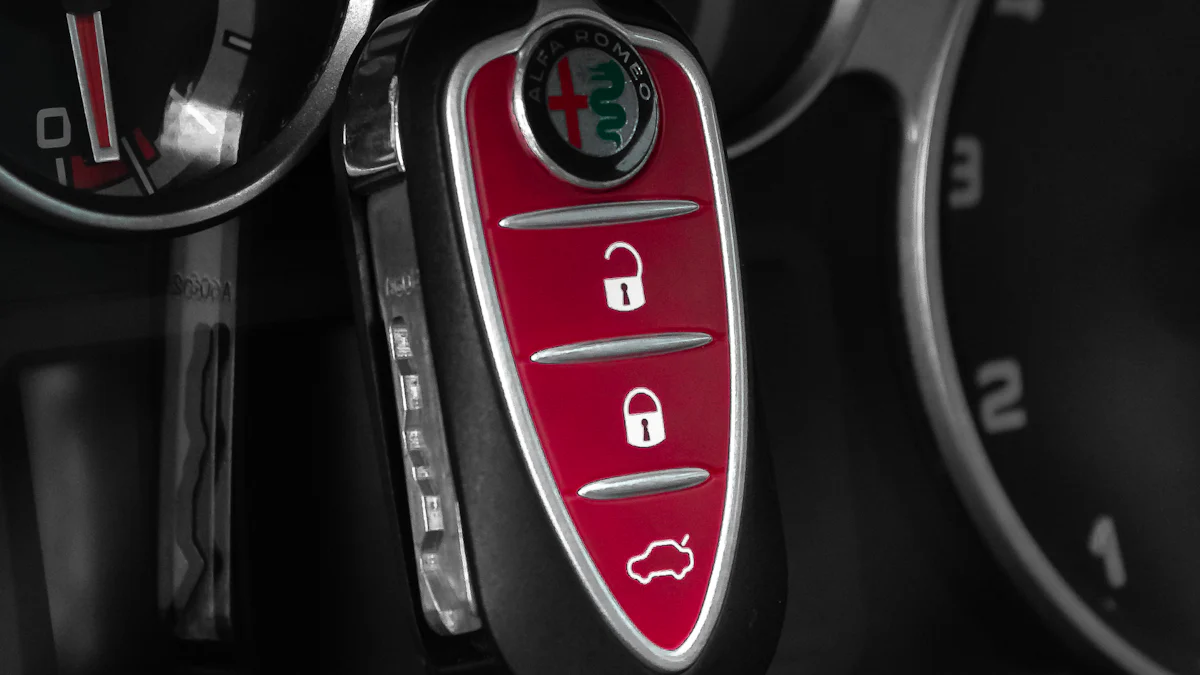What is a Smart Key and How Does It Work?

A smart key represents a modern advancement in key technology. This key allows users to unlock and start vehicles without physical insertion. The evolution of the car key began with traditional metal keys and progressed to the LCD smart car key. Smart keys have become essential in today's technology-driven world. These keys offer enhanced security and convenience, making them indispensable in modern life.
How Smart Keys Work

Technology Behind Smart Keys
Radio Waves
Smart keys use radio waves to communicate with vehicles. These waves transmit signals between the key fob and the car. The car's system receives these signals and processes them to perform actions like unlocking doors or starting the engine.
Antennas
Antennas play a crucial role in smart key technology. Vehicles have embedded antennas that detect signals from the key fob. These antennas ensure accurate communication between the key and the vehicle. Proper placement of antennas enhances the system's efficiency.
Electronic Computers
Electronic computers manage the smart key system. These computers interpret signals from the key fob. They then execute commands such as unlocking doors or starting the engine. The integration of electronic computers ensures seamless operation of smart keys.
Communication Process
Key Fob and Vehicle Communication
The key fob and the vehicle communicate through a series of signals. When the user presses a button on the key fob, it sends a signal to the vehicle. The vehicle's system receives this signal and performs the requested action. This process happens almost instantaneously.
Authentication and Encryption
Smart keys use authentication and encryption to enhance security. The key fob and the vehicle exchange encrypted codes. This process ensures that only authorized users can access the vehicle. Authentication prevents unauthorized access and potential theft.
Power Sources
Battery-Powered
Most smart keys rely on batteries for power. These batteries provide the necessary energy for the key fob to function. Users need to replace these batteries periodically to ensure the key remains operational. Battery-powered smart keys offer convenience and reliability.
Energy Harvesting
Some advanced smart keys use energy harvesting. These keys generate power from external sources like motion or light. Energy harvesting reduces the need for frequent battery replacements. This technology makes smart keys more sustainable and eco-friendly.
Applications of Smart Keys
Automotive Industry
Toyota's Smart Key System
Toyota's Smart Key System revolutionizes vehicle access. The system allows drivers to unlock and start their cars without inserting a car key. Proximity sensors detect the presence of the smart key. This technology enhances convenience and security for Toyota owners.
Other Car Manufacturers
Other car manufacturers also adopt smart key technology. Brands like BMW, Mercedes-Benz, and Audi offer similar systems. These manufacturers integrate advanced features into their smart keys. Users enjoy seamless entry and ignition processes across various car models.
Home Security
Smart Locks
Smart locks bring smart key technology into home security. These locks allow homeowners to unlock doors using a key fob or smartphone. Some smart locks use biometric data for access. This feature adds an extra layer of security to residential properties.
Integration with Home Automation Systems
Home automation systems often include smart locks. These systems connect smart locks to other devices in the home. Homeowners can control locks through voice commands or mobile apps. Integration with home automation enhances the overall security and convenience of smart homes.
Other Uses
Office Buildings
Office buildings benefit from smart key technology. Access control systems use smart keys to manage entry points. Employees use key fobs or access cards to enter secure areas. This system improves security and simplifies access management in workplaces.
Personal Devices
Personal devices also utilize smart key technology. Laptops, smartphones, and tablets can use smart keys for secure access. Users unlock devices with a key fob or biometric data. This technology protects personal information and enhances user experience.
Advantages of Using Smart Keys

Enhanced Security Features
Anti-Theft Mechanisms
Smart keys incorporate advanced anti-theft mechanisms. These mechanisms include immobilizers that prevent unauthorized engine starts. The system disables the engine if the smart key is not present. This feature significantly reduces the risk of vehicle theft.
Encryption and Authentication
Smart keys use encryption and authentication to secure access. The key fob and vehicle exchange encrypted codes. Only authorized users can unlock and start the vehicle. This process ensures a high level of security for the car key system.
Convenience and Ease of Use
Keyless Entry and Start
Smart keys offer keyless entry and start capabilities. Users can unlock doors and start the engine without inserting a car key. Proximity sensors detect the presence of the smart key. This feature provides a seamless and convenient experience for users.
Remote Access
Smart keys enable remote access to vehicles. Users can lock or unlock doors from a distance. Some systems allow remote engine start. This feature enhances convenience, especially in extreme weather conditions.
Ease of Rekeying
Digital Rekeying Process
Smart keys simplify the rekeying process. Digital rekeying allows users to update access codes electronically. This process eliminates the need for physical key changes. Users can rekey their smart keys quickly and efficiently.
Cost and Time Efficiency
Digital rekeying offers cost and time efficiency. Traditional rekeying methods require professional locksmith services. Smart keys reduce these costs by allowing users to rekey themselves. The process saves time and money, making it a practical solution.
Smart keys have revolutionized security and convenience. These keys provide keyless entry and enhanced anti-theft mechanisms. The use of radio waves and electronic computers ensures seamless operation. Future advancements may include more sustainable power sources and improved integration with smart homes. Smart keys will continue to impact daily life by offering ease of use and heightened security. The LCD smart car key represents the pinnacle of this technology, blending innovation with practicality.
See Also
LCD Smart Car Key Features: A Comprehensive Guide
Switching to Smart Car Key: Easy Battery Replacement Steps
Must-Have Spare Key: Isun's LCD Smart Car Key Benefits
iSun Digitech Limited
Contact : Coco Huang
E-mail: sales@iasun.cn

